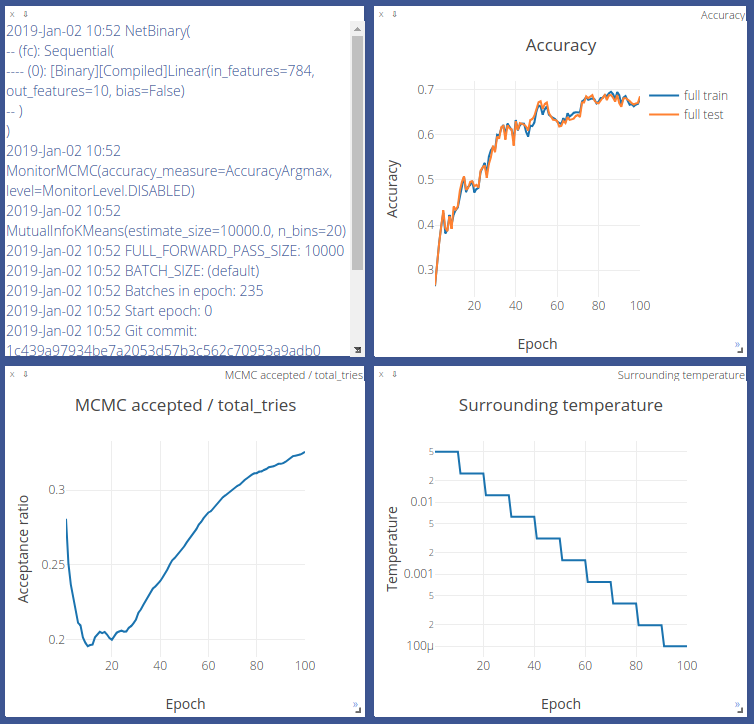This repository demonstrates an alternative optimization of binary neural nets with forward pass in mind only. No backward passes. No gradients. Instead, we use Metropolis-Hasting sampler to randomly select 1 % of weights (connections) in a binary network and flip them (multiply by -1). Then, we can accept or reject a new candidate (new model weights) at MCMC step, based on the loss and the surrounding temperature (which defines how many weights to flip). Convergence is obtained by freezing the model (temperature goes to zero). Loss plays a role of model state energy, and you're free to choose any conventional loss you might like: Cross-Entropy loss, Contrastive loss, Triplet loss, etc.
pip3 install -r requirements.txt- start visdom server with
python3 -m visdom.server -port 8097
import torch.nn as nn
from torchvision.datasets import MNIST
from mighty.utils.data import DataLoader, TransformDefault
from mighty.models import MLP
from trainer import TrainerMCMCGibbs
model = MLP(784, 10)
# MLP(
# (classifier): Sequential(
# (0): [Binary][Compiled]Linear(in_features=784, out_features=10, bias=False)
# )
# )
data_loader = DataLoader(MNIST, transform=TransformDefault.mnist())
trainer = TrainerMCMCGibbs(model,
criterion=nn.CrossEntropyLoss(),
data_loader=data_loader)
trainer.train(n_epochs=100, mutual_info_layers=0)
# Training progress http://localhost:8097For more examples, refer to main.py.
A snapshot of training binary MLP 784 -> 10 (binary weights and binary activations) with TrainerMCMCGibbs on MNIST:
More results:
- Navigate to http://visdom.kyivaigroup.com:8097/. Give your browser a few minutes to parse the json data. Choose environments with
TrainerMCMC. - For your local results, go to http://localhost:8097
- JAGS simulation in R: paper, source
- PyMC3 simulation in Python: readme
